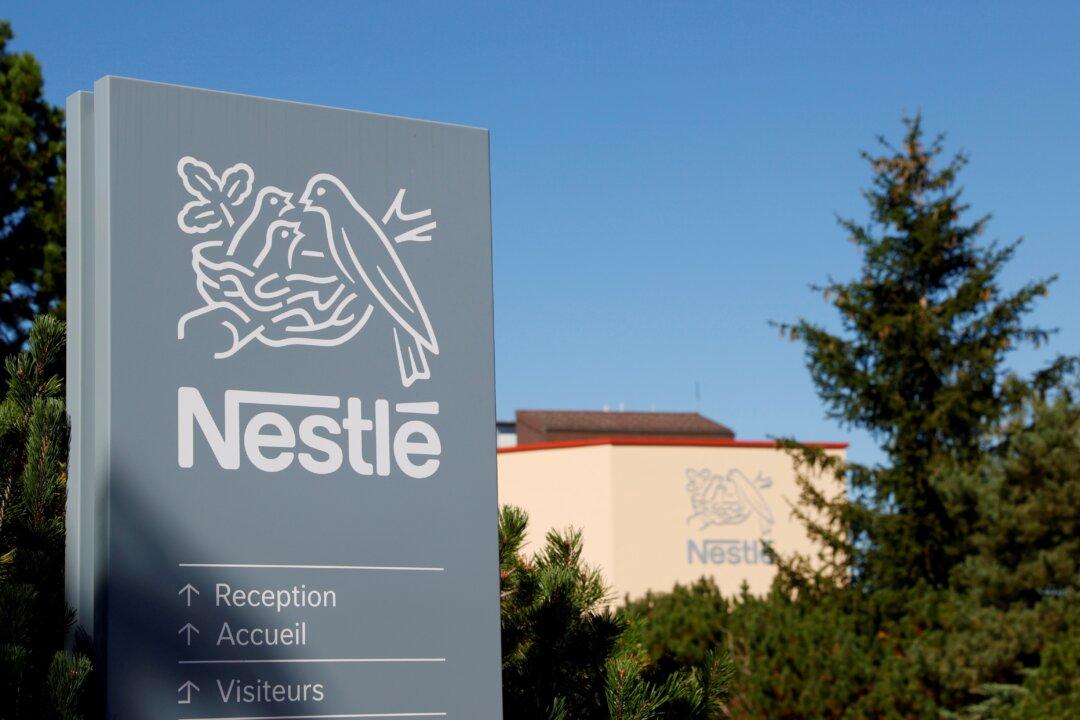LONDON—Nestle reported slightly better-than-expected first-quarter sales on Tuesday, as the world’s biggest packaged food company increased prices to offset weak sales volumes.
The Swiss company, which makes KitKat chocolate bars, Nescafe coffee, and Maggi stock cubes, said sales rose 5.6 percent to 23.5 billion Swiss francs ($26.48 billion) in the quarter ended March 31, beating the average estimate of 23.27 billion francs in a company-provided analyst consensus.





